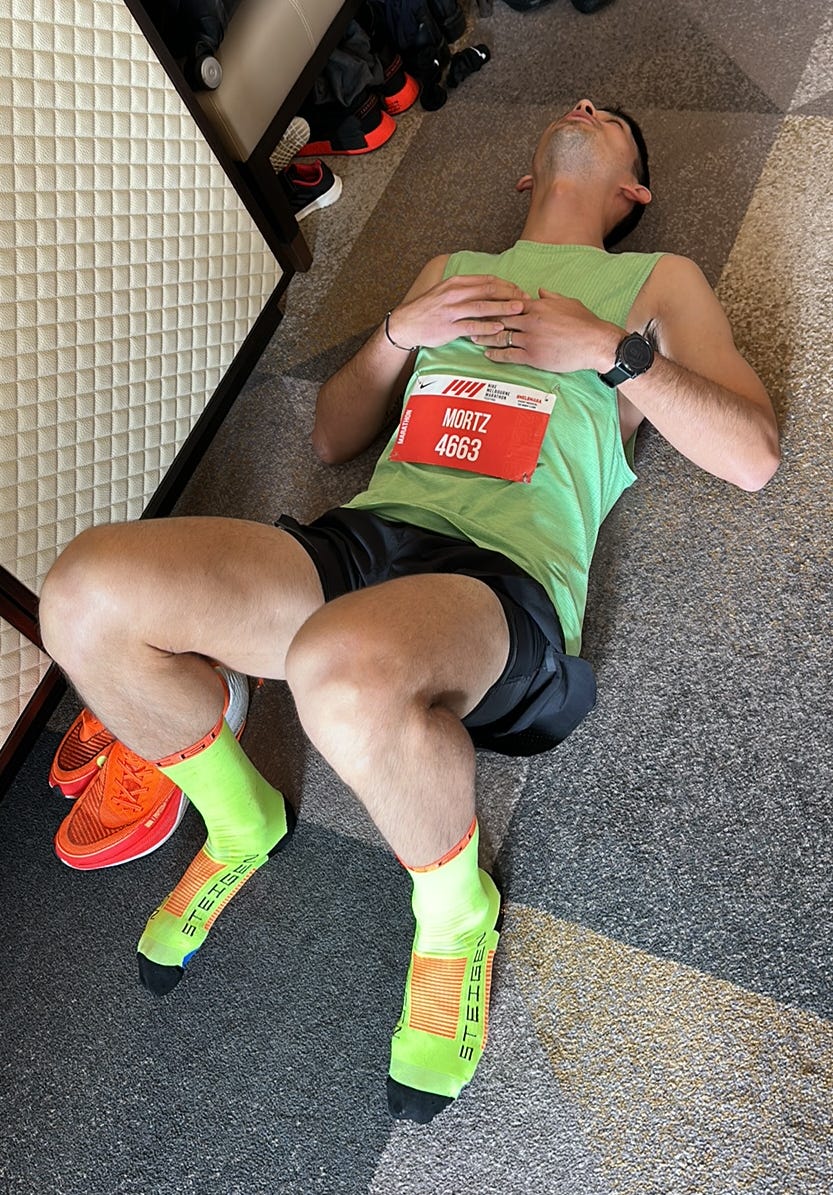A Risk Based Approach
Life is but a series of risk assessments
Late night revelations
It’s late on a Friday evening and I am the last person left in the office. I press send on my farewell message to my former colleagues, power down my laptop and close the lid. I rise for the final time from the ergonomic office chair that has been my home-away-from-home for the past 16 years - a large majority of my working adult life - and think to myself:
Wow, I should have done this years ago!
This was somewhat of an epiphany for me. I had thought after spending so many years at the same company, in the same city, performing the same job, that I would have been more nervous, more doubtful, more concerned about the uncertainty that lay ahead. Afterall, this was the only job I had known since starting as a university intern. I would no longer have the safety net of all the colleagues I have worked with for so long, the protection of a large, multi-national firm with tens of thousands of people, and tiers and tiers of management to guide our company and make all the big decisions. Instead, I felt excited and re-energised at the prospect of joining a new, exciting, and dynamic company that would bring new challenges, responsibilities and ways of working.
And so it is with this mindset that I join Pontem Analytics as the newest member of our Antipodean operations.
It’s all data
So how did I end up working at a single company for the first 16 years of my career?
From early in my childhood, I was identified as one of the “smart” kids. What this meant for me, was lots of extra-curricular classes and an inherent desire/expectation to get the highest grades in all my classes. I was particularly strong in my mathematics and science and outside of the classroom, had a fascination with numbers and - what I now come to realise on reflection - data…more on that soon.
Despite my academic strength, my true passion as a kid was sport, like most Australian boys I knew. Tennis, cricket, football (sorry, Australian rules football), athletics, you name it. I either played it or followed it avidly. I also found ways to combine my fascination for data with my passion for sport. Using pen, paper, and a calculator (I had not discovered Microsoft Excel yet), I would act out hypothetical season after hypothetical season of the Australian Football League (AFL). I would generate my own season fixtures, and use factors such as home ground advantage, recent form, long-term form, and randomness to predict the results for each game. I am embarrassed to say I may or may not have spent countless hours acting out years and years of this fantasy league in my spare time. Once I was introduced to Excel, I also began to track my cricketing career, noting down my individual scores each game, and using that data to generate countless stats and plots to dissect how I was going. The inherent nature of sport as a game of numbers is perhaps one of the biggest reasons for my passion, in hindsight.

A safe bet
After a childhood dreaming of becoming a professional athlete, I gradually accepted the harsh truth that my athletics abilities would not be good enough from which to make a living. So, what to do? Apart from wanting to play sport for a living, I hadn’t really thought about what else I wanted to do with my life. As I approached the end of my secondary education, I had to make the decision what to study at uni. The two main choices I narrowed in on were:
Move to the other side of the country and study to become an Actuary.
Stay in Perth and study Engineering to one day join the “never-ending” resources boom.
After many discussions with parents, relatives and counsellors, I decided the safest bet was to stay at home and study Engineering where everything was familiar, and I could be supported by my family. Once I had a few years of uni under my belt, I then sought an internship to compliment my uni studies. I landed an internship with a company doing Flow Assurance - a term I had heard previously in one of my uni lectures. I found the work very challenging, with each project posing different problems and requiring specific technical expertise. At the conclusion of my internship, I was offered a permanent role and instead of taking a risk by looking at what else was out there, I chose to accept the offer to do something I had already gained experience in, that was becoming familiar to me, that was safe. So began my career as a Flow Assurance consultant.
You may have noticed by now a bit of a recurring theme…playing it safe. This is a theme that has continued to play out over the past 16 years of my life. Some examples from my professional career that come to mind include:
Turning down offers from other consulting firms
Pulling out of potential relocations to overseas offices
Not accepting a voluntary redundancy when offered during the Global Financial Crisis
This aversion to risk that I have developed also extends to my personal life and hobbies. For example, despite being an avid runner for decades, I had never run a marathon. Why? Because I only wanted to run a marathon if I was able to put aside the time and energy to train enough to maximise my potential. Because the “safe and sensible” way to run a marathon is after a LOT of training.
And what had all these safe plays got me? Well, until recently, 16 years in a career that although highly challenging and very rewarding, had in my opinion stalled. I had become uninspired and burned out, but also complacent at the same time. Just going through the motions. That, and no marathon!

Reckless Abandon
After a life lived behind the safety car, if not the fast lane, what was the turning point? If I had to pinpoint anything, I would say it was a pair of running shoes that my wife gave me as a Christmas gift. After years of hearing me talk about running a marathon, she’d had enough. She bought me a pair of Nike Vaporfly’s and told me to shut-up and Just Do It (TM). Without having done any training, I enrolled for a marathon on the other side of the country and bought airfares so I would have to commit no matter what. Despite a less-than-ideal preparation that included injuries and illness, I ploughed on and at the ripe old age of 37, completed my first marathon. What did discarding my safety-first approach get me? A slower result than perhaps I had dreamed of yes. But far more importantly, it got me a result…any result. Which is more than I could say for my previous safety-first approach.
With this new attitude towards risk, I naturally jumped at the opportunity to join Pontem when I was approached. Was it a risk to leave the comfort of 16 years with a major consulting firm who are starting to pivot to energy transition? Absolutely! Was it a risk to join a relatively new company that I did not know too much about at the time. For sure! However, instead of thinking about only the potential consequences and avoiding risk as I have done so many times previously, I decided to use a bit more of an Engineering approach. I considered the potential consequences of a career move, the likelihood of said consequences coming to pass, and weighed this up against the potential up-side. In this case, the numbers added up for this analytical engineer.
Risky Business

With all the above introspection of my relationship with risk, it is somewhat fitting that my first project with Pontem Analytics involves assessing the feasibility of employing a risk-based hydrate management strategy to try and enable a development that until now has not succeeded. Such innovative strategies that strike the optimum balance between consequence and likelihood could allow many future marginal developments to progress where a previous hydrate avoidance strategy might have made the development impossible. More on this in a future post from my colleague Conor.
So, let’s see what exciting adventures this new attitude towards risk takes me. I can think of no better company than Pontem Analytics to test these waters.



